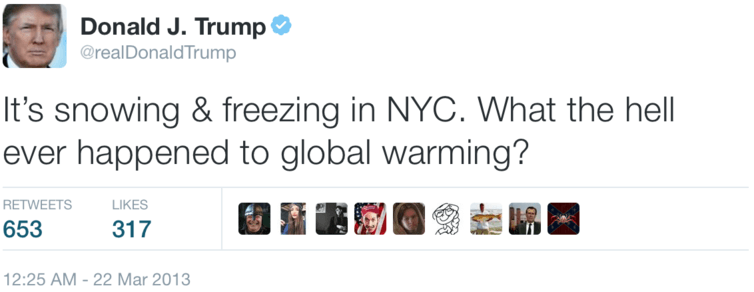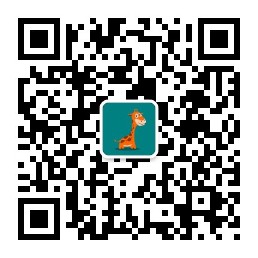第230期:cherry-pick
今天我们要聊的这个词是个英语成语。看似很简单,其实不简单。字面意思是“摘樱桃”,但实际内涵很丰富。我们挑几个重点的意思了解一下。首先注意,cherry和pick中间有连字符。Cherry-pick是动词,cherry-picking是名词。
在所有字典中,韦伯斯特对这个词的释义简单:to select the best or most desirable.
按照这个释义,cherry-pick就是“精选”、“精挑细选”的意思。这是这个词最直观和简单的字面意思,当然是对的。意思是说就像人们挑选樱桃时那样,把品相最好的樱桃从一堆樱桃中跳出来。这是人之常情。在表示这个意思时,也只有表示这个意思时,cherry-pick是褒义的。除此之外,cherry-pick几乎都是有贬义的。
If you cherry-pick something, you choose something very carefully.
假设你第一次约会请异性吃饭,and you have cherry-picked a nice restaurant. 这里的cherry-pick肯定是褒义的。
另一个字典解释比韦伯斯特好:To cherry-pick is to opportunistically choose the most beneficial or profitable items. 就是说这种“精挑细选”其实是有“机会主义”心理的。
我们今天要说的主要是cherry-pick比字面涵义更深一层的意思——cherry-pick是一个逻辑上的谬误, a logical fallacy. 且看下文。
Cherry-picking is also known as: suppressed evidence, fallacy of incomplete evidence, argument by selective observation, argument by half-truth, card stacking, fallacy of exclusion, ignoring the counter evidence, one-sided assessment, slanting, one-sidedness.
这层意思解释起来有点复杂,国内几个网站上的解释都不太合适。这里的cherry-picking意思是“选择性地采用对己方有利的证据/数据以支持己方论点”。有个网站上说这叫“选择性失明”,我觉得这个翻译不错。
Cherry picking is a logical fallacy in which someone points out evidence
that supports their claim while ignoring the evidence against their
claim.
这个意义上的cherry-picking常见于(英美)法庭辩论环节、辩论比赛或者某些国家的政治宣传,刻意用某个或某些不完整的数据或证据来佐证自己想要强调或推广的观点。举几个例子吧。
辩论赛是最常用到cherry-picking手段的场合,或者说,辩论赛上双方辩手基本上每句话都是在cherry-picking,因为大家都在拼命抓对方话语中的漏洞,然后用断章取义的论点反驳对方的论点。关于这一点,大家可以重温一下1993年国际大专辩论赛的文字实况。正方台湾大学,辩题是:人性本善。反方复旦大学,辩题是:人性本恶。对这两个至今无解的宇宙级哲学命题,双方大学生辩手充分发挥了cherry-picking的手法。大家读了就明白cherry-pick是什么意思了。在这种情况下,cherry-pick可以简单理解为“断章取义”、“以偏概全”。
Cherry picking is when we look only for confirming evidence for our
ideas. We ignore, suppress, do not see, or do not test for disconfirming
evidence for our ideas.
例如,A说“兵贵神速”,所以速度最重要,要快。B反驳说“欲速则不达”,速度太快反而坏事。A和B其实都在cherry-picking,因为双方都只选择对自己有利的那个成语。这种情况下,cherry-picking又叫quote mining(只找对自己有利的引语)。大家明白了吗?
*链接:1993年国际大专辩论赛的文字实况 – http://blog.sina.com.cn/s/blog_4fb79b200102dvgu.html
Cherry-pick手法还普遍用于政治领域。例如民主国家的每次大选中,双方都倾向于只选择对自己有利的数据。
For instance, if you want to make a president look good, you can choose a
starting point when unemployment was very high and an end point when
unemployment was very low, giving the impression that the president was
good for the economy. But you can make that same president look bad by
presenting unemployment data that starts when unemployment was low and
ending when it was very high, giving the impression that the president
was bad for job growth. (本段摘自https://medium.com/@WrightAaronM/the-fallacy-of-cherry-picking-3dd0f77f9967)
在非民主国家的政治宣传中,cherry-picking手法更常见,只是大家感觉不到罢了。因为宣传者要的就是你感觉不到的效果,你只要相信就可以了。
关于政治宣传是如何利用cherry-picking手法对民众洗脑的,佛老不便多讲。有个有趣的网站可自行参考(http://www.discerningthemystery.com/2017/10/know-your-propaganda-card-stacking.html)

Cherry-picking examples:
Examples
1) A presidential candidate mentioned all the cities where his tax
policy decreased crime and failed to mention all the cities where his
policy increased crime.
2) A survey of participants in a workout program gets very positive results because only those with positive results responded.
3) To prove cigarette smoking is not harmful to your health, I cite
my grandpa, a ninety year old smoker who runs marathons. *Giving this
type of anecdotal evidence is usually a form of cherry picking.
(上例摘自:http://lucidphilosophy.com/7-cherry-picking/)

美国一个网站(https://skepticalscience.com/)有篇揶揄川普的文章说,川普在竞选总统时在演说现场问一个选民祖上是哪里人。选民说是南美移民来的。川普因此说拉美裔选民都支持自己。
Trump cherry picks isolated examples of Hispanic supporters to cover the fact that the vast majority of surveyed Hispanics disapprove of him.
因此这篇文章说川普刻意挑选了这个拉美裔选民来得出全体拉美裔都支持自己的片面结论。
在美国,枪支问题,全球暖化问题是常年争论不休的话题,始终有两派相反的观点,大家各自引经据典,越说越觉得自己有理,对方难道是白痴吗?其实这些都是cherry-picking fallacy的例子。

Elizabeth Gilbert在“Eat, Pray, Love”一书中说到:有很多人,没有宗教信仰,但又为此觉得不安,想找一个宗教作为心灵依靠,但又不想太郑重皈依某个教门,只想找到一个令自己感到舒适的”god”在自己虚弱时有指望。Gilbert说They are cherry-picking a religion. 这里面的cherry-picking就是我们开始说的”带有功利心、机会主义“的选择,这种语境下,也可以粗略翻译为”挑肥拣瘦“、”挑三拣四“,尽管不是那么精确。
好了,今天佛老讲的有点绕嘴,有点烧脑,有点无聊了。只怪cherry-pick这个词太复杂,要把这个词真的全面讲清楚,可能需要写本书。
感谢你的时间。
明天见。




